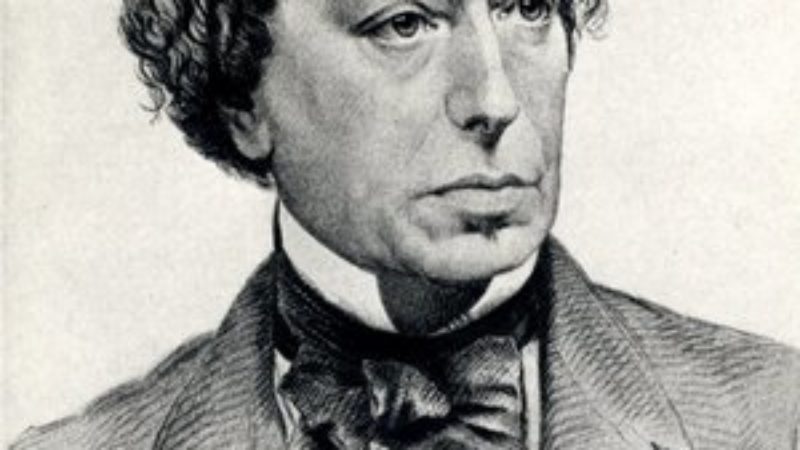
It is now just over a month since Ed Miliband made his ‘One Nation’ conference speech. When a speech can be instantly recalled by a single phrase, it is usually a good indication of its effectiveness. And there can now be little doubt that it galvanised the party and stimulated thinking.
The speech gave the clearest and most powerful indication yet of the direction Ed is taking the party. It is perhaps best understood in the context of three of his prior interventions.
The ‘Squeezed Middle’ described the problem; that living standards are in decline and have been for some time. Between 2003 and 2008 disposable income fell in every UK region outside of London.
‘Responsible Capitalism’ provided the aspiration, outlining a vision of the fairer, more equal society we wish to build.
Finally, ‘predistribution’ outlined Ed’s political methodology, his process of creating change in a tough economic climate.
Yet until ‘One Nation’, it is fair to say these various strands had not exactly leapt of the page. No longer. With one phrase Ed was able to offer a critique of the existing social order under the Tories, whilst simultaneously offering the hope of a better one under Labour.
It is stolen, as Ed acknowledged at conference, from Benjamin Disraeli, perhaps the Conservative Party’s most celebrated champion of the working class. As an out-of-favour young politician and jobbing author, Disraeli first unveiled this philosophy in his 1845 manifesto-cum-novel Sybil, or the Two Nations.
As the political leader of the Tory ‘Young England’ movement, which argued for a return to the social conservatism and duty of pre-industrial England, Disraeli lambasted the greed and division of the great 19th century industrial cities, such as Manchester, Birmingham and Stoke-on-Trent. There could now exist, he protested, within one city two entirely different nations, ‘between whom there is no intercourse and no sympathy; who are ignorant of each other’s habits, thoughts and feelings, as if they were dwellers in different zones, or inhabitants of different planets’. These two nations were ‘formed by different breeding’, fed by different food, and governed by different laws. They were ‘the rich and the Poor’.
The target of Disraeli’s ire was an equally skewered political economy. Disraeli’s target was the laissez-faire, night watchman state of the ‘Manchester School’ of neoliberal conservatives. Rather than the barren exchange of the cash-nexus, Disraeli stressed the ties that bind; he believed in a moral conception of society beyond the narrow confines of the marketplace. And he highlighted, amongst the condition of the urban poor of industrial England, the social costs of a failing model of capitalism.
Many may feel queasy about pilfering the ideas of a Conservative, even one such as Disraeli. But there is no need to recoil. A proper understanding of Disraeli shows that in extreme social contexts it is possible to be both radical and conservative. As we approach Victorian levels of inequity today, we are living through one such context.
Furthermore, as Cameron – who once postured as heir to Disraeli himself – continues to lose his rear-guard battle against the aggressively libertarian, free-marketeers in his party, there is a real opportunity for Labour to talk the traditionally conservative language of preserving our social fabric. From protecting the NHS, to preventing the sale of public assets such as forests, motorways and museums, this is the terrain that the ‘One Nation’ rhetoric boldly seeks to capture.
But more than this, it also offers a clear and renewed commitment to the party’s historic duty of lifting the life chances of the poor. Inequality matters: too great a distance between the two nations harms social cohesion and undermines our sense of solidarity, impoverishing us all.
Britain under the Tories is divided, particularly now that they have retreated into their traditional ‘divide and rule’ modus operandi. As they pit North v South, public v private and the unemployed v workers, the task of providing unity and offering a story of national renewal falls to Labour. And that is before we even consider potential divisions between Scotland, England and Wales.
Building an authentic story of national renewal in a time of fragmenting identities and where the political challenge – for Labour, bluntly, the South – diverges from the main public policy challenge of rebalancing the economy and spreading wealth more evenly (i.e. to the North) will be extremely difficult. Particularly given the constraints of our new, more austere focus on predistribution. However, with the new Tech Bacc for vocational education, the British Investment Bank, and the amplified campaign for a Living Wage, we already have some strong signature ‘One Nation’ policies. And as this discussion demonstrates, we are certainly not short of collective ingenuity.
It is up to all of us now to go out and begin building a ‘One Nation’ Britain.
Tristram Hunt is MP for Stoke-on-Trent Central
This piece forms part of Jon Cruddas’s Guest Edit of LabourList




More from LabourList
‘As metro mayors gain power, Labour must tighten political accountability’
Letters to the Editor – week ending 22 February 2026
‘The coastal towns where young people have been left behind by Whitehall’